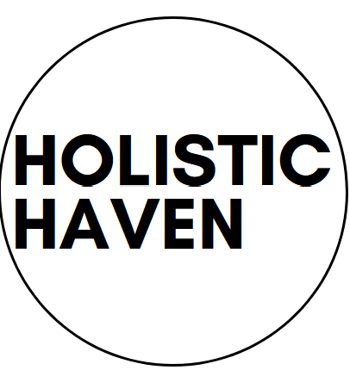The Importance of Whey Protein: Benefits Beyond the Gym
1/16/20253 min read


When people think of whey protein, the first thing that often comes to mind is its connection to fitness enthusiasts and bodybuilders. While it is true that whey protein plays a pivotal role in muscle recovery and growth, its benefits extend far beyond the gym. Whether you're an athlete, a busy professional, or someone striving to improve overall health, incorporating whey protein into your diet can be a game-changer.
What is Whey Protein?
Whey protein is a complete protein derived from milk during the cheese-making process. It contains all nine essential amino acids, making it an excellent choice for supporting muscle repair, boosting immune function, and enhancing overall well-being. Among the various types of whey protein, isolate and concentrate are the most popular, with whey isolate being a purer form with minimal lactose and fat.
Why I Take Whey Protein Daily
As a fitness enthusiast and personal trainer, I prioritize my nutrition to support both my active and rest days. Whey protein has become a staple in my diet not because I depend on it, but because it offers a convenient and efficient way to meet my daily protein requirements. While I aim to consume most of my protein through whole foods like chicken, eggs, and legumes, there are times when I need a little extra to hit my target. This is where whey protein steps in.
Even on rest days, I take a serving of whey protein. Why? Recovery doesn't stop when you're not working out. Your muscles and body still need adequate protein to repair, rebuild, and maintain overall health. By including whey protein on rest days, I ensure my body gets the nutrients it needs to stay strong and resilient.
The Benefits of Whey Protein in Daily Life
Supports Muscle Recovery and Maintenance
Whey protein's high concentration of branched-chain amino acids (BCAAs), particularly leucine, helps stimulate muscle protein synthesis. This is crucial not just for athletes but also for anyone aiming to maintain lean muscle mass as they age.
Enhances Immune Function
Studies suggest that whey protein can boost glutathione levels, a powerful antioxidant that supports the immune system. This can help you stay healthy and energetic in your daily life.
Promotes Satiety and Weight Management
Whey protein is highly satiating, which means it can help reduce hunger and curb unhealthy snacking. Including it in your breakfast or as a mid-day snack can keep you feeling fuller for longer.
Convenient and Versatile
For those with busy schedules, whey protein is an easy and quick option to ensure you meet your nutritional needs. You can mix it with water, milk, or smoothies, or even use it in recipes like protein pancakes and muffins.
Supports General Health
The amino acids in whey protein are vital for producing enzymes, hormones, and other compounds that are essential for bodily functions. Additionally, whey protein may help improve blood sugar regulation and reduce inflammation.
Science-Backed Benefits
Numerous peer-reviewed studies support the benefits of whey protein:
A 2018 study published in Frontiers in Nutrition found that whey protein supplementation effectively enhances muscle mass and strength when combined with resistance training.
Research in The American Journal of Clinical Nutrition highlighted whey protein's ability to improve weight management by reducing body fat and preserving lean muscle.
Why Optimum Nutrition Gold Standard 100% Whey?
Not all whey protein products are created equal. One of my top recommendations is Optimum Nutrition Gold Standard 100% Whey. It stands out because:
It contains 24 grams of protein per serving, primarily from whey isolate.
It mixes effortlessly and comes in a variety of great-tasting flavors.
It’s low in fat and carbs, making it suitable for various dietary needs.
A Balanced Approach
While whey protein is a fantastic supplement, it’s important to remember that it should not replace whole foods in your diet. Whole foods provide a wide range of nutrients, including fiber, vitamins, and minerals, that supplements alone cannot offer. I use whey protein to fill the gaps and ensure I meet my daily protein goals without compromising the quality of my diet.
Supplements are tools, not replacements. A balanced diet that prioritizes whole meals alongside strategic supplementation is the best way to support long-term health and wellness.
Conclusion
Whey protein is much more than a gym supplement. Its versatility, nutritional benefits, and convenience make it a valuable addition to almost anyone’s diet. Whether you're looking to recover from workouts, support your immune system, or manage your weight, whey protein can be an ally in achieving your health and wellness goals.
For those considering adding whey protein to their routine, I recommend starting with a reputable brand like Optimum Nutrition Gold Standard 100% Whey. If you’re ready to incorporate whey protein into your diet, you can follow this link to purchase it. And remember, the key to a healthy diet is balance—whey protein is a tool, not a crutch.
References:
Devries, M. C., & Phillips, S. M. (2018). Supplemental protein in support of muscle mass and health: advantage whey. Frontiers in Nutrition, 5, 73. https://doi.org/10.3389/fnut.2018.00073
Hector, A. J., & Phillips, S. M. (2018). Protein recommendations for weight loss in elite athletes: A focus on body composition and performance. The American Journal of Clinical Nutrition, 108(3), 530–541. https://doi.org/10.1093/ajcn/nqy089
